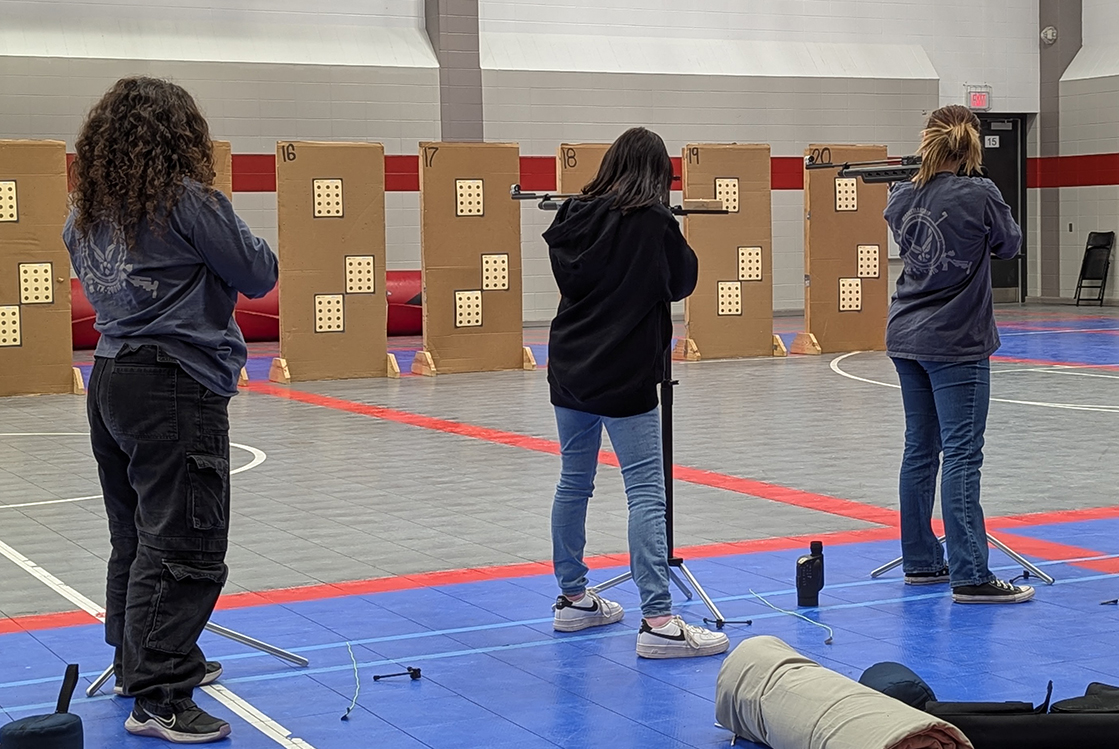 Because of a decision by the Texas Legislature, Bryan ISD will lose about $5.8 million dollars in state funding for the Fiscal Year 2012. “By the Ledger” is a series of articles that focuses on the impact such budget cuts have had on Bryan High.
Because of a decision by the Texas Legislature, Bryan ISD will lose about $5.8 million dollars in state funding for the Fiscal Year 2012. “By the Ledger” is a series of articles that focuses on the impact such budget cuts have had on Bryan High.
Due to increased pressure on the school budget and declining enrollment, administrators were forced to cut certain academic programs. Latin, which was previously one of the four foreign languages taught, is now being phased out, as students this year can no longer take Latin I.
“We, in the district, had to cut a few million dollars,” Principal Diana Werner said. “In looking at needs and enrollment, and at the language courses, [Latin] was the course that had the least enrollment. With everything, we always look at what the need is amongst the students.”
Should the demand increase for Latin, Werner said the administration would revisit offering Latin again, but, that even with the elimination of Latin, the administration remains dedicated to second-language acquisition and encourages students to take a Spanish, French or German class.
One of the reasons that Latin has continued to be offered in high schools and universities, though it is no longer spoken natively, is that it is used widely in the medical and legal fields.
Yet, beyond the scientific and legal professions, Latin teacher Holly Carlton says Latin is also useful in a student’s general studies.
“For students who have a hard time in English already, Latin helps them with English skills, for the grammar is very closely related and 70% of our words are Latin-based,” Carlton said. “Also, many of the books read in English refer to classical text. You’re taking away those opportunities to make connections between subjects, and that’s part of [what it means to be] a junior and senior, making connections between the subjects you’re learning.”
Besides English, Latin also forms a base for many foreign languages, and students who are interested in learning multiple foreign languages, or in international business, will often have to have a grasp of an international standard.
“A lot of times, work takes you somewhere else,” French teacher Tara Bailey said. “My dad has traveled to almost every continent, so it really helps to know if not one, but more than one foreign language. You never know where you’ll end up, so languages will really help you.”
Spanish teacher Anja Schwalen studied Latin in her native Germany, and says that it helped her later on in life.
“I took Latin as a second language, so we did a lot of grammar and later I took French, so [taking Latin] helped me a lot,” Schwalen said. “Later on, with Spanish, it helped me even more.”
Much like the other foreign language courses, Latin follows a curriculum that also focuses on learning the history and culture of the language, not just grammatical structure and vocabulary.
“Latin’s the basis for western civilization,” Schwalen said. “Whether it’s law, the other European languages, or historical achievements; all are based on ancient roman civilization. I think that one month of world history, covering classics is not enough. I think Latin’s a good class for anyone to take.”
In lieu of Latin, Chinese was expected to be offered this year as a new second-language course, but, due to budgetary restrictions, the district was unable to provide the course and is looking to provide it in the near future.
“If our students are going to compete in the business word, or just even involved in new conversation with new companies, they’re going to be met with Chinese,” Werner said.










